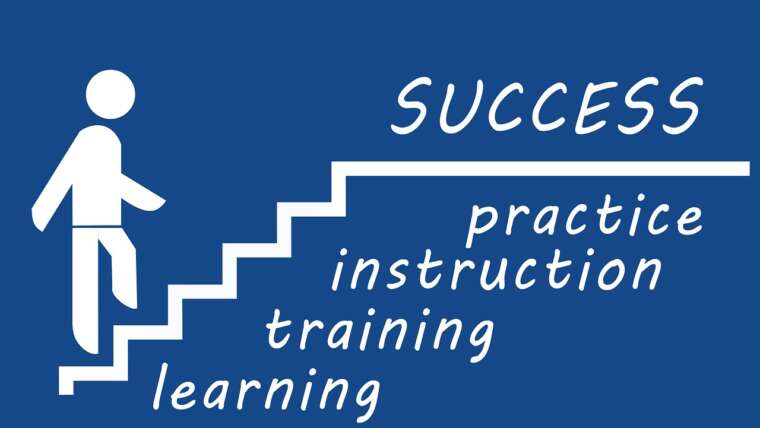
It would not be an exaggeration to say that there is a wealth of career opportunities available in the nursing industry that are open to anyone, as long as they are prepared to work hard and never stop taking advantage of the chance to learn.
With that in mind, let’s take a look at a few of the reasons pursuing a career in nursing is such a wise move,
There are many reasons to pursue a career in nursing. First, nurses are in high demand and can find many career opportunities in the nursing industry. It is also a great way to help people and make a positive difference in the lives of others.
Nurses work closely with patients and their families and provide care and support during times of need, so if you are looking for a challenging and rewarding career, nursing may be the perfect fit for you.
The profession offers a great deal of flexibility and freedom when it comes to choosing a career path, and there are many different types of nursing jobs available.
Nurses can specialize in a variety of areas. Whether you are interested in working in a hospital, clinic, or private practice, there is a nursing job that is right for you.
There is also the option to work in research, education, or administration, so the possibilities are practically endless.
The different types of nursing
There are many different types of nursing, and nurses have the opportunity to specialize in various areas of care. For example, pediatric nurses care for children, while geriatric nurses specialize in care for older adults. There are also critical care nurses who work in intensive care units (ICUs) and provide care for patients who are critically ill or injured.
No matter what type of nursing you’re interested in, there are many ways to specialize your career and make a difference in the lives of your patients. If you’re passionate about helping others and want to make a difference in the world, a career in nursing may be right for you.
Opportunities for growth and advancement
The nursing profession offers many opportunities for growth and advancement. Whether you are looking to move up in your current organization or explore new career paths, there are plenty of ways to develop your skills and advance your career in nursing.
Here are some tips for continuing your professional development as a nurse.
- Pursue continuing education opportunities
There are many ways to continue your education as a nurse. You can take advantage of online courses, distance learning programs, and traditional classroom settings, and there are also many specialty certification programs available that can help you expand your knowledge base and expertise.
- Join professional organizations
Joining professional organizations is a great way to network with other nurses and stay up to date on the latest developments in the nursing field.
Many organizations offer continuing education credits and other benefits that can help you further your career.
- Get involved in research
If you are interested in pursuing a more research-focused career path, there are many ways to get involved in nursing research. You can participate in clinical trials, conduct literature reviews, or even become a nurse researcher yourself.
- Teach others
Sharing your knowledge and expertise with others is a great way to give back to the profession and advance the care of patients. You can volunteer to teach classes at local community colleges or universities, give presentations at conferences, or write articles for professional journals.
- Advocate for change
As a nurse, you have a unique perspective on the healthcare system and the needs of patients. You can use your voice to advocate for change at the local, state, and national levels. You can also get involved in political campaigns or become a lobbyist for nursing-related issues.
No matter what stage you have reached in your career, there are always opportunities for further professional development. Pursuing these opportunities can help you grow as a nurse and make a positive impact on the profession.
Nursing qualifications
There are several types of nursing programs available, each with its own set of benefits. The most common type of nursing program is the traditional four-year bachelor’s degree, which takes four years to complete and provides students with a strong foundation in nursing theory and practice.
Additionally, four-year bachelor’s degree programs prepare students for careers in a variety of healthcare settings, including hospitals, clinics, and private practices.
Another type of nursing program is the two-year associate’s degree. This type of program takes half the time to complete compared to a four-year bachelor’s degree program, and it provides students with a more focused education in nursing. Associate’s degree programs typically prepare students for careers as registered nurses (RNs).
There are also several specialized nursing programs available. These programs are designed for students who want to pursue careers in specific areas of nursing, such as pediatrics or geriatrics. Specialized nursing programs typically take two years to complete and often lead to certification in a particular area of nursing practice.
No matter what type of nursing program you choose, you’ll gain the knowledge and skills you need to succeed in your chosen career. Nursing is a challenging and rewarding profession, and there are many different types of nursing programs available to help you get started on your career path.
Leadership roles
There are many different nurse leadership roles, and the specific role that a nurse leader plays will depend on the needs of the organization.
If you are wondering why educational leadership is important in modern healthcare, take a look at some of the roles listed below and the positive impact that they can have on the nursing industry.
Some common nurse leadership roles include:
- Department Head: The department head is responsible for the overall operation of their department. This includes ensuring that patient care is delivered effectively and efficiently and that staff are properly trained and supported.
- Clinical Nurse Manager: Clinical nurse managers are responsible for overseeing the clinical operations of their unit. This includes ensuring that patients receive high-quality care and that staff are following best practices.
- Nurse Educator: Nurse educators play a vital role in ensuring that nurses have the knowledge and skills they need to provide safe and effective patient care. They may develop and deliver educational programs or provide one-on-one mentoring to other nurses.
- Nurse Researcher: Nurse researchers conduct studies aimed at improving the quality of patient care. Their work helps to identify best practices and develop new treatments and therapies.
- Nurse Administrator: Nurse administrators are responsible for the overall management of a healthcare facility. This includes ensuring that the facility is run efficiently and effectively, and that patient care standards are met.
Leadership roles for nurses are constantly evolving, and new roles are being created to meet the changing needs of healthcare organizations. As the healthcare landscape continues to change, nurses will play an increasingly important role in leading the way forward.
Different nurse leadership roles will have different responsibilities, but all nurse leaders share a commitment to improving the quality of patient care.
Salary expectations
Nursing professionals are some of the highest-paid workers in the medical field.
Nurse anesthetists, for example, earn a median salary of $165,000 per year, with other nursing roles, such as registered nurses and nurse practitioners, also boasting high salaries. In fact, RNs earn a median salary of $73,300 per year, while NP salaries typically fall around $103,880 per year.
As you might expect, leadership roles can command even higher salaries. This means that as far as earning capabilities are concerned, the more ambitious the individual, the higher the salary expectations could be.
Salaries for nursing professionals can vary depending on experience level, geographical location, and other factors. However, there’s no doubt that nursing is a well-paid profession and an individual who is determined to succeed will find that becoming a nursing professional will offer them numerous opportunities to advance their career.
The future for nursing professionals
Nurses are in high demand, and the job outlook for nursing is very positive. According to the Bureau of Labor Statistics, employment of registered nurses is expected to grow by 16 percent from 2014 to 2024, which is much faster than the average for all occupations.
The aging baby boomer population will need more healthcare services as they live longer and more active lives. Moreover, the Affordable Care Act is expected to increase the demand for preventive and primary care services, which will require more nurses.
With that in mind, let’s take a closer look at the reasons the baby boomer population and the Affordable Care Act mean that the opportunities within the nursing industry have never been greater.
The Affordable Care Act
The Affordable Care Act, which is sometimes referred to as “Obamacare”, is a health insurance reform that was passed into law in 2010. The main goal of the Affordable Care Act is to make health insurance more affordable and accessible to all Americans. It accomplishes this by providing subsidies to help people pay their premiums and by expanding Medicaid coverage to low-income Americans.
The law also requires all Americans to have health insurance or face a tax penalty.
The Affordable Care Act has helped millions of Americans gain access to quality, affordable healthcare and has also made it easier for people with pre-existing medical conditions to get coverage.
Baby boomers
When it comes to healthcare, baby boomers have unique needs and concerns. As the first generation of Americans to experience widespread access to quality healthcare, baby boomers have high expectations for their health and well-being. However, they also face a number of challenges as they age.
One of the biggest challenges facing baby boomers is the rising cost of healthcare. In recent years, healthcare costs have been rising at an alarming rate. This has put a strain on many individuals’ budgets and has made it difficult for them to afford the quality care they need and deserve.
Another challenge facing baby boomers is the increasing prevalence of chronic diseases such as diabetes and heart disease, which can be expensive to treat and can have a major impact on a person’s quality of life.
Finally, baby boomers are also facing the challenge of being part of a large aging population. As more baby boomers reach retirement age, the demand for healthcare services is likely to increase. This could lead to longer wait times for appointments and procedures and could make it difficult for baby boomers to get the care they need in a timely manner.
Despite these challenges, there are many reasons to be optimistic about the future of healthcare for this segment of the population.
Thanks to advances in medical science, baby boomers are living longer and healthier lives than ever before. With the help of nursing professionals, any potential health problems can often be nipped in the bud.
Conclusion
With hard work and constant learning, the career prospects in the nursing industry are superb.
One career choice that many people don’t realize is the educational leadership field, where the rewards are extremely generous in terms of both pay and job satisfaction.
The opportunities within the nursing profession overall have probably never been greater, and it could quite easily be described as the “perfect storm”, with the baby boomer generation getting older and health problems connected to the pandemic spurring a demand for nursing professionals like never before.
If you are interested in a nursing career, whether it is actual hands-on nursing or more of an educational leadership role, there has never been a better time to get involved – and there is no limit to what can be achieved through hard work and the commitment to never stop learning.


